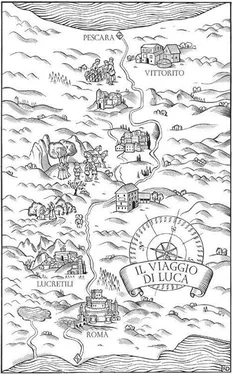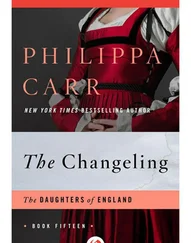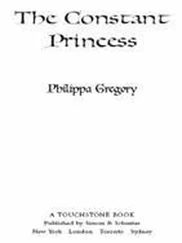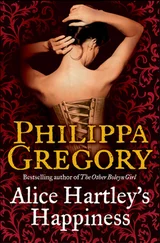Philippa Gregory - Changeling
Здесь есть возможность читать онлайн «Philippa Gregory - Changeling» весь текст электронной книги совершенно бесплатно (целиком полную версию без сокращений). В некоторых случаях можно слушать аудио, скачать через торрент в формате fb2 и присутствует краткое содержание. Год выпуска: 2012, ISBN: 2012, Издательство: Simon & Schuster, Inc., Жанр: Старинная литература, на английском языке. Описание произведения, (предисловие) а так же отзывы посетителей доступны на портале библиотеки ЛибКат.
- Название:Changeling
- Автор:
- Издательство:Simon & Schuster, Inc.
- Жанр:
- Год:2012
- ISBN:9780857077332
- Рейтинг книги:5 / 5. Голосов: 1
-
Избранное:Добавить в избранное
- Отзывы:
-
Ваша оценка:
- 100
- 1
- 2
- 3
- 4
- 5
Changeling: краткое содержание, описание и аннотация
Предлагаем к чтению аннотацию, описание, краткое содержание или предисловие (зависит от того, что написал сам автор книги «Changeling»). Если вы не нашли необходимую информацию о книге — напишите в комментариях, мы постараемся отыскать её.
Changeling — читать онлайн бесплатно полную книгу (весь текст) целиком
Ниже представлен текст книги, разбитый по страницам. Система сохранения места последней прочитанной страницы, позволяет с удобством читать онлайн бесплатно книгу «Changeling», без необходимости каждый раз заново искать на чём Вы остановились. Поставьте закладку, и сможете в любой момент перейти на страницу, на которой закончили чтение.
Интервал:
Закладка:
‘Now you see,’ he crowed triumphantly. ‘Now you see what happens when you throw a good man down on his back on the cobbles – when you go tipping good women into bear pits. Too strong by half, is what I would say. Too opinionated by half, is what I would propose. Too proud of your opinion to make any man a good sweetheart or wife. Bound to end in a cold grave as a spinster, I would think. If not burned as a witch, as has already been suggested.’
She raised her hands as if in surrender. ‘Clearly I have offended you—’ she began.
‘You have,’ Freize said grandly. ‘And so I shall ride behind, like a servant, and you may ride ahead, like an opinionated overly powerful lady, like a woman who does not know her place in the world, nor anyone else’s. Like a woman who goes chucking men onto their backs, and women into bear pits, and causing all sorts of upset. You shall ride ahead, in your pomp, as vain as the bishop, and we know which of us will be the happier.’
Ishraq bowed her head under his storm of words, and mounted her horse without replying. Clearly, there was no dealing with Freize in his state of outrage.
Isolde came out of the inn and Freize helped her into the saddle and then Luca came out followed by Brother Peter.
‘Where to?’ Ishraq asked Luca.
He mounted his horse and brought it alongside hers. ‘Due east, I think,’ he said. He looked to Brother Peter. ‘Isn’t that right?’
Brother Peter touched the letter in his jacket pocket. ‘North-east it says on the outside of the letter, and at breakfast tomorrow, at Pescara, if we get there, God willing, I am to open our orders.’
‘We will have another mission?’ Luca asked.
‘We will,’ Brother Peter said. ‘All I have is the directions to Pescara, but I don’t know what the instructions will say nor where they will take us.’ He looked at Isolde and Ishraq. ‘I take it that the ladies will be travelling with us to Pescara?’
Luca nodded.
‘And leaving us there?’ Brother Peter prompted.
‘Can’t go soon enough for me,’ Freize said from the mounting block as he tightened his girth and got on his horse. ‘In case she takes it into her head to throw me into a river – or into the sea when we get there, which clearly she might do if she takes it into her own wilful head.’
‘They will leave us when they find safe companions,’ Luca ruled. ‘As we agreed.’ But he brought his horse alongside Isolde and reached out to put his hand on hers, as she held her reins. ‘You will stay with us?’ he asked quietly. ‘While our roads go together?’
The smile that she gave him told him that she would. ‘I will stay with you,’ she promised. ‘While our roads lie together.’
The little cavalcade of Luca and Isolde, Brother Peter and Ishraq, with Freize behind them, surrounded by his beloved extra horses, clattered out of the gateway of the inn, not yet knowing where they were going, nor what they had to do, and headed north-east for Pescara – and for whatever lay beyond.

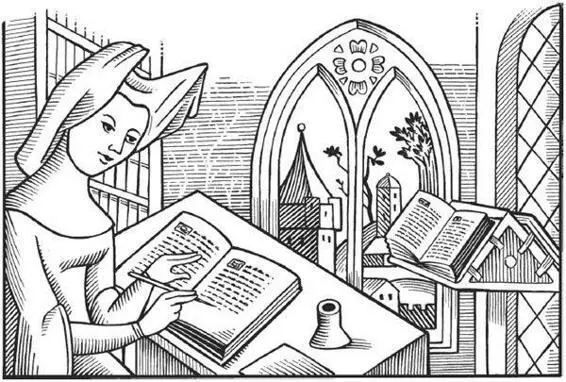
AUTHOR NOTE
This has been a joy to write, and I hope that you’ve enjoyed reading it as much as I have loved working on it. The character of Luca Vero is entirely imaginary, as are Isolde and Freize. The character of Ishraq, though invented, is based on the many courageous and adventurous men and women who moved between the world of Christendom and the worlds of the other religions: Jews, Muslims, and even those farther afield.
What the book means to you, the reader, will be for you to decide. Most people will read it, I hope, for pleasure and with pleasure, and have the fun of joining young, passionate characters on a journey into an unknown world, where they face their fears and experience their powers. Some readers may want to know a little more about the world of the Order of Darkness.
The Order of Darkness is based on the fifteenth-century Order of the Dragon, which was created to defend Christendom against the apparently unstoppable rise of the Muslim Ottoman Empire. One of the characters who will arrive in the story in subsequent books, was introduced to this Order by his father when he was just a little boy and rose to become its commander, fighting at the very outpost of Christendom.
The investigation entrusted to Luca – to find the signs of the end of times – is a fictional version of the anxiety felt by most people after the fall of Constantinople. The rise of all sorts of strange phenomena in Europe at this time shows that many people were fearing that anything could happen – and was happening. Also, these were deeply superstitious times. People genuinely believed that there was another, unseen, world sometimes glimpsed but often bearing down upon their lives. For those of us who now live in a world where we try to measure and understand everything, it is hard to imagine what it would have been like to have no explanation for everyday events like illness, thunder, or an eclipse, yet having your world rocked by the death of a loved one, your house shaken by a thunderclap or your day turning into night as a dark moon eats up the sun.
Isolde is typical of the girls of her time in that her life would be completely determined by her father and, on his death, her brother or any male kinsman. Legally, she could not buy or sell land or property, and anything she inherited would automatically belong to her husband on marriage. She would have no rights of her own at all: a father or husband was legally allowed to beat her; he could care for her as well or as badly as he liked. In these sorts of circumstances life in a nunnery was probably preferable to a bad marriage – as Isolde decides. In the nunnery there was the possibility of a career (like the Lady Almoner, who joins as a little girl and rises in authority) and the chance to organise your own life inside the strict rules of the order. Many women relished the education, and many had a deep religious experience.
Poor boys had a similar chance at improving their lives if they were accepted into a monastery and someone like Luca – who has exceptional abilities – would have had a good chance of rising to be a clerk or secretary to a great lord, who would find his administrators in the ranks of the Church. If Luca had stayed inside the Church, he might have risen to become a senior cleric. Brother Peter is a career churchman like this; he came from a poor family but is rising up through the Church. Luca does not take this route because he uncovers the many frauds that were going on in medieval churches. People wanted to see miracles, and dishonest churchmen produced relics of saints that could not possibly be genuine, and faked mechanical toys like weeping statues. This was part of the superstitions of the times, but was promoted by the Church, which made its money from the payments of the faithful.
Freize is, at first sight, a more normal poor boy. He joins the monastery as a lay worker – not a priest but someone simply working in the monastery as he might have worked in a big house. He has a gift for handling animals, and for common sense. He would have been very poor in the medieval world. If he had not won a place in a monastery, he would probably have had to work in the fields and would have been regarded as the servant, almost the property, of the local lord, who ruled everything.
Ishraq is perhaps the most unusual character of the four. Brought into Europe from the Middle East by Lord Lucretili, she was raised as his daughter’s companion and protector, and he had her trained in fighting skills, medicine and other disciplines. She remains half in and half outside of the society as a heretic. Medieval Christians thought that anyone who did not accept the Bible just as they did was a non-believer and their soul was damned to hell. If someone chose to prosecute her for heresy, then she could be burned by the Church – but as long as she made no enemies she might pass through society with people showing little more than curiosity. There were probably far more heretics, Moors, Africans and other races and religions in Europe than have been counted.
Читать дальшеИнтервал:
Закладка:
Похожие книги на «Changeling»
Представляем Вашему вниманию похожие книги на «Changeling» списком для выбора. Мы отобрали схожую по названию и смыслу литературу в надежде предоставить читателям больше вариантов отыскать новые, интересные, ещё непрочитанные произведения.
Обсуждение, отзывы о книге «Changeling» и просто собственные мнения читателей. Оставьте ваши комментарии, напишите, что Вы думаете о произведении, его смысле или главных героях. Укажите что конкретно понравилось, а что нет, и почему Вы так считаете.
